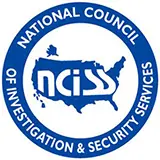In the realm of business, establishing trust is paramount. Before entering into partnerships, collaborations, or business transactions, it is imperative for organizations to conduct thorough client background verification. This process goes beyond a cursory look into the mode specific financial records; it involves a comprehensive type of assessment of a client’s history, reputation, and integrity. This article delves into the significance of client background verification, exploring the key elements, methodologies, and best practices that organizations employ to ensure they enter into partnerships with clients of high repute.
Understanding Client Background Verification
Client background verification is a systematic process of researching and validating information related to a potential or existing client. The objective is to assess the client’s reliability, credibility, and moral standing before engaging in these types of business transactions. This due diligence process involves the research of a lot of elements, including financial stability, legal history, business practices, and strong report that is built up in the industry.

The Importance of Client Background Verification
Risk Mitigation:
One of the primary reasons for client background verification is to mitigate risks. By thoroughly looking into and assessing a client’s background, organizations can identify potential red flags, such as financial instability or legal issues, that may prove to be huge risks to the successful completion of a business transaction.
Financial Stability:
Assessing a client’s financial stability is crucial for predicting their ability to fulfill financial obligations. Client background verification involves scrutinizing financial statements, credit reports, and payment histories to gauge a client’s financial health and liquidity.
Legal Compliance:
Ensuring that a client adheres to legal and regulatory requirements is a fundamental aspect of background verification. This involves confirmation that the client operates within the bounds of the grounds of law, complying with industry regulations, and has a very clean and strong legal record.
Reputation Management:
Associating with clients of questionable repute can tarnish an organization’s image. Background verification allows businesses to safeguard their reputation by avoiding partnerships with clients involved in unethical practices, controversies, or legal disputes.
Operational Efficiency:
Engaging with reputable clients enhances operational efficiency. More reliable clients are more likely to sustain their contractual obligations, leading to smoother business practices, timely payments, and an overall positive impact on the more efficient aspects and angles of the organization.

Key Elements of Client Background Verification
Financial Health:
Assessing a client’s financial health involves a thorough examination of their financial statements, credit reports, and payment history. This process helps determine the client’s liquidity, debt levels, and overall financial stability.
Legal History:
Investigating a client’s legal history is crucial for identifying any past or ongoing legal issues. This includes lawsuits, regulatory violations, or any criminal activities associated with the client or its key personnel.
Operational Practices:
Understanding a client’s operational practices provides insights into their business model, supply chain, and overall operational efficiency. This assessment helps gauge the client’s ability to meet contractual obligations and deliver products or services on time.
Reputation and Industry Standing:
Examining a client’s reputation within the industry and the broader business community is vital. This involves considering client reviews, testimonials, industry rankings, and any reported ethical concerns or controversies.
Client References:
Seeking references from other entities that have conducted business with the client provides firsthand insights into their reliability and professionalism. References can offer valuable information about the client’s communication style, adherence to deadlines, and overall satisfaction of past collaborators.

Methods of Client Background Verification
Document Review:
The first step in background verification often involves a meticulous review of documents provided by the client. This may in some cases include financial statements, contracts, legal documents, and any other types of relevant paperwork that sheds light on the client’s history and common types of interactions.
Financial Analysis:
Conducting a financial analysis involves assessing the client’s financial statements, cash flow, profitability, and debt levels. Financial ratios and performance indicators are analyzed to gain a comprehensive understanding of the client’s financial health.
Credit Checks:
Credit checks involve reviewing the client’s credit history and credit scores. This process helps keep the evaluation type of element to the client’s creditworthiness and their ability to meet financial obligations.
Regulatory Compliance Checks:
Verifying the client’s compliance with industry regulations, local laws, and other regulatory requirements is essential. This ensures and keeps intact that the client operates within legal boundaries and minimizes the risk of high forms of legal complications.
Background Investigations:
Background investigations may include researching the client’s key personnel, reviewing their professional history, and identifying any red flags related to their past business dealings. This is really important when dealing with high-profile clients or executives.
Online Reputation Monitoring:
Monitoring the client’s online presence and reputation involves tracking news articles, social media mentions, and online reviews. This provides real-time insights into any emerging issues that may impact the client’s standing.
Interviews and Site Visits:
Conducting interviews with key personnel and, when feasible, visiting the client’s facilities can provide additional context and firsthand observations. This approach allows organizations to assess the client’s operational practices and corporate culture.

Best Practices for Effective Client Background Verification
Establishing Standardized Procedures:
Organizations should establish standardized procedures for client background verification. These procedures should outline the steps, documentation requirements, and criteria for assessing a client’s background.
Regularly Updating Information:
Client background verification is an ongoing process. Regularly updating information about existing clients ensures that organizations stay informed about any changes in the client’s financial status, legal standing, or reputation.
Leveraging Technology:
Utilizing technology, such as data analytics and artificial intelligence, can enhance the efficiency and accuracy of client background verification. Automated tools can streamline the analysis of financial data, monitor online mentions, and flag potential risks.
Collaboration with Legal and Compliance Teams:
Collaboration between the teams responsible for client background verification and legal or compliance departments is crucial. Legal experts can provide insights into regulatory compliance, while compliance teams can ensure adherence to industry standards.
Maintaining Confidentiality:
Client background verification involves accessing sensitive information. Maintaining confidentiality throughout the certain investigation is massively essential to protect both the client’s privacy and the organization’s health in the forefront.
Educating Employees:
Ensuring that employees involved in client interactions are educated about the importance of background verification is vital. Training programs can equip employees with the knowledge and skills needed to conduct due diligence effectively.
Transparent Communication:
Transparent communication with clients during the verification process is key. Clearly articulating the reasons for background checks and requesting necessary documentation fosters a transparent and cooperative client relationship.
Client background verification is a crucial component of risk management and can in some cases be held responsible through business conduct. By thoroughly assessing a client’s financial health, legal history, operational practices, and reputation, organizations can make informed decisions about doing partnerships or business transactions. The evolving landscape of technology and data analytics provides new tools and approaches for conducting effective client background verification. As businesses strive for sustainability and success, the power of assurance types have been gained through comprehensive background checks becomes an integral element in building and maintaining trusted relationships within the business ecosystem.
As a trusted partner in corporate investigations, ASG Investigations brings expertise to streamline your client background verification. Our comprehensive approach ensures thorough assessments, mitigates risks, and fosters transparent, trustworthy business relationships. Let us be your ally in navigating the complexities of due diligence, safeguarding your interests, and building lasting success. Contact ASG Investigations today to elevate your risk management strategies and ensure the reliability of your business partnerships.










